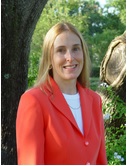Dear Commons Community
We have reached a desirable point in our society where coming out by celebrities is nowhere near the big news story it was a decade or so ago. Along with gay marriage, there is a growing acceptance of the gay lifestyle in most of our institutions. However, yesterday’s coming out by Tim Cook, the CEO of Apple Corporation has the media buzzing and rightfully so mainly because he is the first chief executive of a major, Fortune 500 corporation to do so. As reported in the New York Times:
“Tim Cook’s declaration on Thursday that “I’m proud to be gay” made him the first publicly gay chief executive of a Fortune 500 company. But Mr. Cook isn’t just any chief executive. And Apple isn’t any company. It’s one of the most profitable companies in the Fortune 500 and ranks No. 1 on the magazine’s annual ranking of the most admired companies.
As Lloyd Blankfein, the chief executive of Goldman Sachs, put it, “He’s chief executive of the Fortune One. Something has consequences because of who does it, and this is Tim Cook and Apple. This will resonate powerfully.”
Trevor Burgess, the openly gay chief executive of C1 Financial in Florida, and one of the first publicly gay chief executives of a public company, said Tim Cook used “the metaphor of laying a brick on the ‘path towards justice.’ ” But, “This is more like 600 million bricks,” Mr. Burgess said. “He has the most influential voice in global business.”
This will resonate powerfully indeed.
Tony



